All Formats & Editions

What's Wrong With The World
Chesterton gives his remarkably perceptive analysis on social and moral issues more relevant today than even in his own time. In his light and humorous style, yet deadly serious and philosophical, he comments on feminism and true womanhood, errors in edication, the importance...
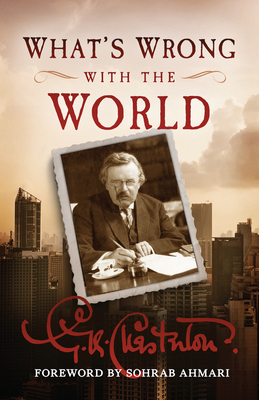
What's Wrong with the World
In 1910, when the industrialists and intelligentsia both promised only "progress," G. K. Chesterton was among the few in the West who could see the brewing ideological storms that would soon make landfall, not just in the form of world wars and totalitarianism but in the pervasive...

What's Wrong With The World
![lo que esta mal en el mundo [Spanish] 1979203687 Book Cover](https://i.thriftbooks.com/api/imagehandler/l/2507960307B4A5A8DE829086BB0A194B58DDFC0E.jpeg)
lo que esta mal en el mundo [Spanish]
Con su habitual estilo sarc stico, Gilbert Keith Chesterton le da un repaso a la sociedad post victoriana en la que vive y, desde su perspectiva cat lica, analiza los puntos sustanciales que considera dignos de cr tica. Con un lenguaje period stico y manifiestamente ir nico,...
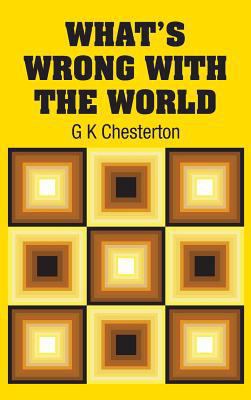
What's Wrong with the World
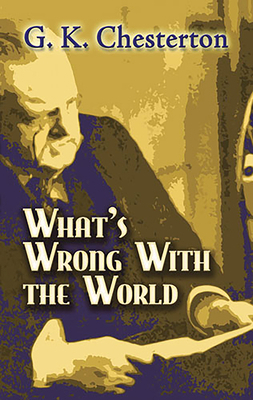
What's Wrong with the World
In the aptly titled treatise What's Wrong With the World, one of the twentieth century's most memorable and prolific writers takes on education, government, big business, feminism, and a host of other topics. A steadfast champion of the working man, family, and faith,...

What's Wrong with the World
This collection of humorous essays by renowned author G. K. Chesterton perceptively examine the various wrongs of society and the world. The topics discussed in this book's three parts range between social commentary, a discussion of humankind and its nature, the impact of spirituality...
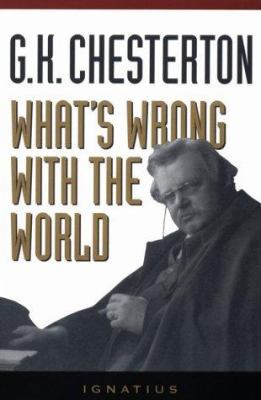
What's Wrong with the World
Chesterton gives his remarkably perceptive analysis on social and moral issues more relevant today than even in his own time. In his light and humorous style, yet deadly serious and philosophical, he comments on feminism and true womanhood, errors in education, the importance...
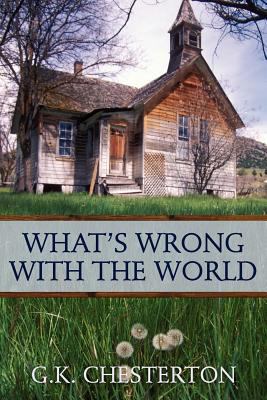
What's Wrong With the World
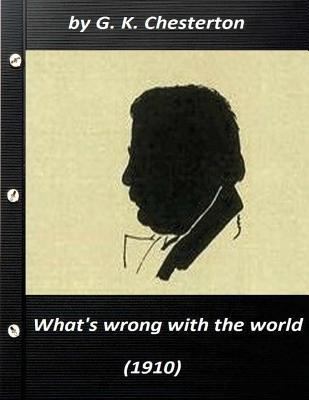
What's wrong with the world (1910) by G. K. Che...

What's Wrong with the World
Gilbert Keith Chesterton, (29 May 1874 -14 June 1936), better known as G. K. Chesterton, was an English writer, poet, philosopher, dramatist, journalist, orator, lay theologian, biographer, and literary and art critic. Chesterton is often referred to as the "prince of paradox"...
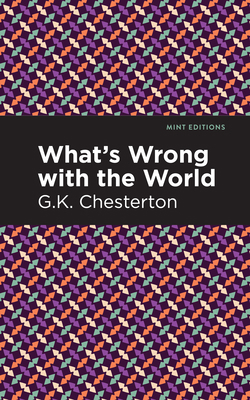
What's Wrong with the World
G.K. Chesterton delivers insightful commentary on modern behavior and social practices influenced by big business, gender roles, government and other notable figures throughout his lifetime. The book is inspired by his own personal beliefs regarding faith, family and...
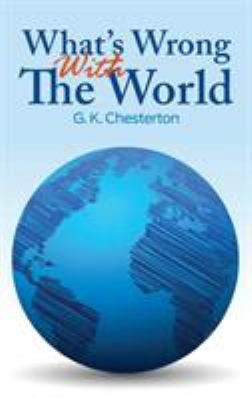
What's Wrong With The World

What's Wrong With The World
This remarkably perceptive analysis of social and moral issues by the noted British novelist and critic is as relevant today as it was in the author's era. Chesterton's style is light and humorous - but also deadly serious and philosophical - as he provides witty commentary on...
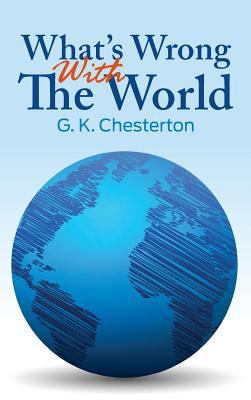
What's Wrong with the World
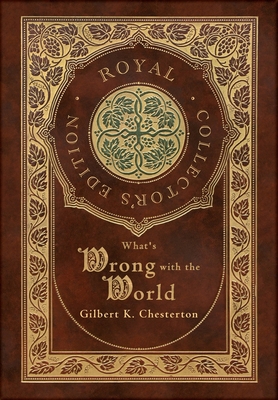
What's Wrong with the World (Royal Collector's ...
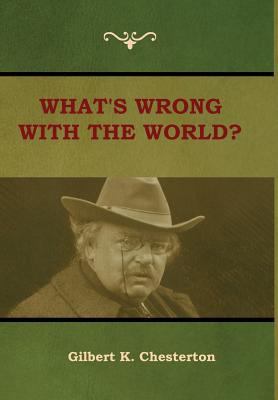
What's Wrong With the World?
Gilbert Keith Chesterton, KC*SG (29 May 1874 - 14 June 1936), was an English writer, poet, philosopher, dramatist, journalist, orator, lay theologian, biographer, and literary and art critic. Chesterton is often referred to as the "prince of paradox". Time magazine has observed...
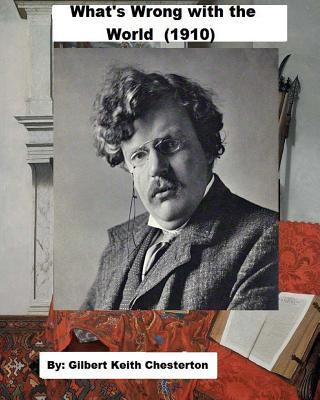
What's Wrong with the World (1910)
Gilbert Keith Chesterton, KC*SG (29 May 1874 - 14 June 1936), better known as G. K. Chesterton, was an English writer, poet, philosopher, dramatist, journalist, orator, lay theologian, biographer, and literary and art critic. Chesterton is often referred to as the "prince of...
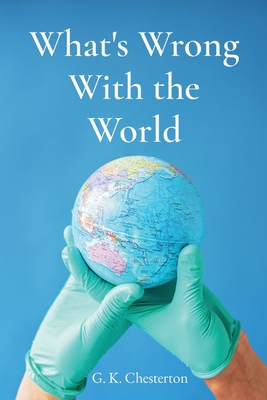
What's Wrong With the World
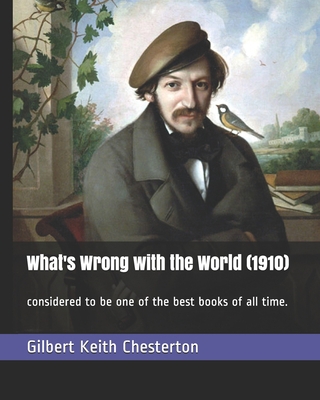
What's Wrong with the World (1910): considered ...
What's Wrong With the World, written by legendary author G. K. Chesterton is widely considered to be one of the best books of all time.Gilbert Keith Chesterton, (29 May 1874 - 14 June 1936), was an English writer, philosopher, lay theologian, and literary and art critic. He has...
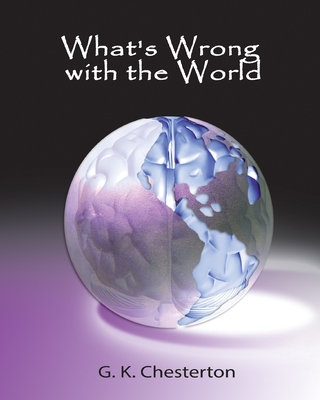
What's Wrong with the World
In the aptly titled treatise What's Wrong With the World, one of the twentieth century's most memorable and prolific writers takes on education, government, big business, feminism, and a host of other topics. A steadfast champion of the working man, family, and faith, Chesterton...
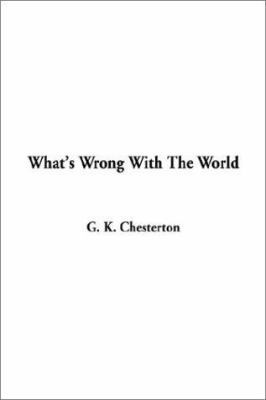
What's Wrong With The World
"What's Wrong With The World?" is a book by G. K. Chesterton, first published in 1910. In this work, Chesterton examines the state of the world and offers his own unique perspective on the issues of the day. He offers a scathing critique of modern society, and his sharp wit...
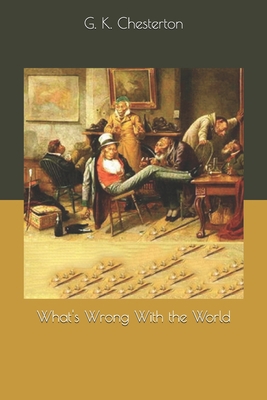
What's Wrong With the World
This work has been selected by scholars as being culturally important, and is part of the knowledge base of civilization as we know it. This work was reproduced from the original artifact, and remains as true to the original work as possible. ...
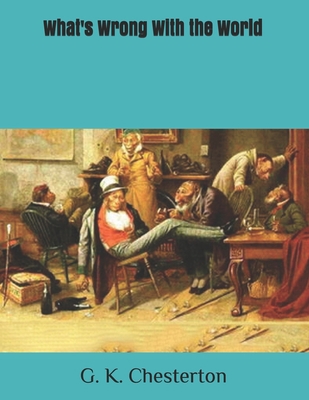
What's Wrong With the World: Large Print
Gilbert Keith Chesterton was an English writer, philosopher, lay theologian, and literary and art critic. He has been referred to as the "prince of paradox".




